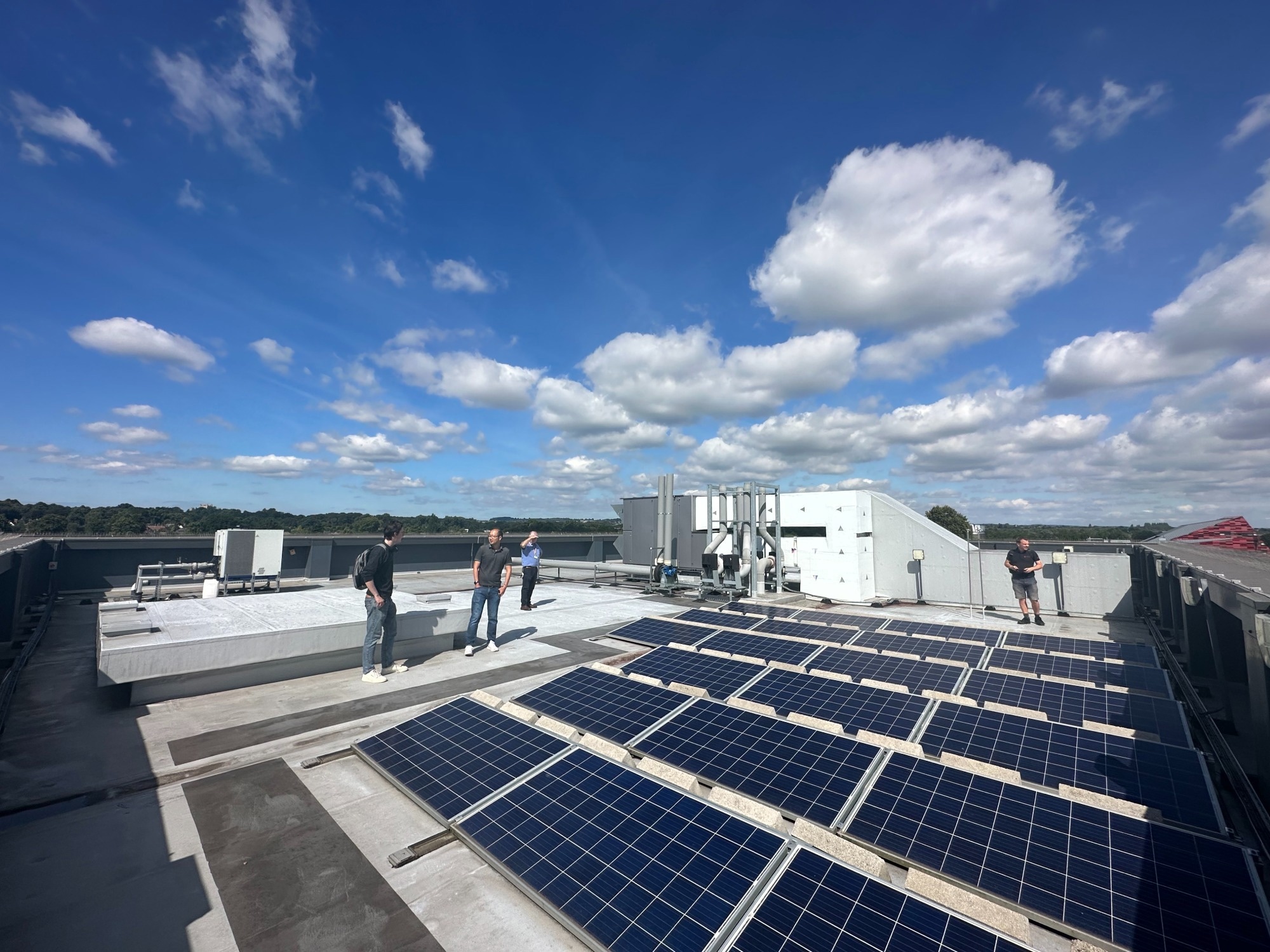Researchers at the University of Nottingham have received a share of one billion pounds for a project aiming to reduce CO2 emissions through the creation of an AI model that will improve the accuracy of short-range weather forecasting for photovoltaic (PV) production.
 The installation on the top of the RAD Building at the University of Nottingham. Image Credit: University of Nottingham
The installation on the top of the RAD Building at the University of Nottingham. Image Credit: University of Nottingham
As the UK continues its journey to net zero, PV generation and usage is expected to increase as a sustainable alternative to other energy sources like coal. However, unlike traditional power stations that have a standard level of output, PV relies on the weather and batteries to ensure a consistent level of input – meaning that accurate weather forecasting has a crucial role to play.
Traditional forecasting methods have used satellite imagery, which cover larger areas and can be distorted by cloud cover, to provide a prediction that, if incorrect, would affect the output of PV panels. Whereas the comprehensive AI model being developed at the University of Nottingham will combine sky images with numerical weather data to significantly improve prediction accuracy by more than ten per cent.
Professor Yupeng Wu, Chair in Building Physics in the University of Nottingham’s Faculty of Engineering, said: “We will use fisheye lens cameras, which will be placed on the ground to monitor the sky and capture images that will be inputted to our AI model, combined with weather data and temperature regulations to provide us an in-depth snapshot of the weather over the next ten minutes in that specific location.
“While ten minutes may not seem like a long period of time, the way we’ll be using the data is specifically linked to grid management. Our forecast will be able to ‘warn’ the grid as to how much PV is likely to be produced and, therefore, how much power is needed from the battery to ensure the power supply is balanced.”
Nottingham is one of eight AI initiatives to have been selected from across the UK as part of the government’s AI for Decarbonisation Innovation Programme, which is enabled through the one-billion-pound Net Zero Innovation Portfolio (NZIP).
Two test sites have been selected in Nottingham, one on the roof of the Research Acceleration and Demonstration Building on the university’s Jubilee Campus and another at the Aldi Warehouse located in Long Eaton with that hope that the technology will be able to be scaled up in future.
Professor Wu continued: “Our long-term goal is to not only be able to integrate our AI model into the main system at local weather stations so that we can improve forecasts, but also to help the future PV network and allow companies to manage their energy more sustainably.”